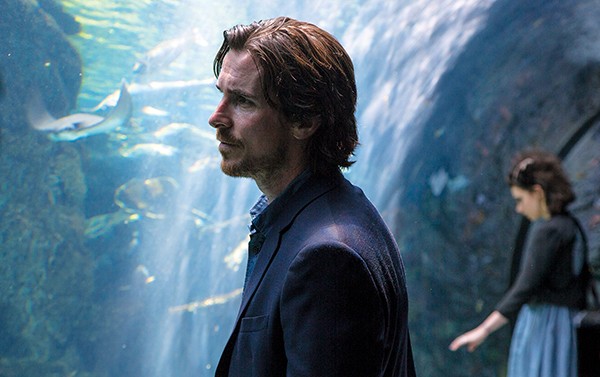
August Diehl as Franz Jägerstätter and Valerie Pachner as Fani Jägerstätter in A Hidden Life
What would you have done if you lived in Nazi Germany? Would you have been able to recognize the threat of growing fascism? Would you have resisted the rush toward war, or would you have gone along to get along? What sacrifices would you be willing to make to protect democracy? Would you have sheltered fugitives from the Nazi death camps, even if it meant the possibility that it would earn you a ticket to the gas chamber?
Generations studying World War II have asked themselves these hypotheticals, but these questions don’t look so academic in the America of 2020. This is the implicit question that hangs over A Hidden Life. Director Terrance Malik has never been shy about asking big questions — after all, this is a guy who made a quasi-documentary, The Voyage of Time, that aims to tell the story of the birth, life, and death of the entire universe.
Malick’s vehicle to explore the individual’s responsibility in times of pervasive societal evil is the story of Franz Jägerstätter, an Austrian farmer who became a martyr after refusing to swear a loyalty oath to Hitler. He begins with shots from Triumph of the Will of Hitler’s airplane on his way to the Nuremberg rally. Then the cold, precise, monochrome lines of the parade grounds give way to the sinuous lines and verdant colors of the mountains surrounding Franz’s farm.
If nothing else, Malick and his cinematographer Jorg Widmer have created an incredible travelogue of rural Austria. This is The Sound of Music country, but the Jägerstätter family couldn’t be more unlike the privileged Von Trapps. Instead of singing about how the hills are alive, they spend their time reaping wheat off the hills with actual scythes. The symbolism of villagers whose sons are marching off to fight for the Nazis wielding the implement most associated with the grim reaper isn’t exactly subtle. But if you know Malik’s work, you know subtlety isn’t exactly his strong suit.

Malik is one of those directors who has his own pace, and he tries to seduce you into matching speeds with one impeccable composition after another. He gets obsessed with watching Franz (August Diehl), his wife Fani (Valerie Pachner), and her sister Resie (Maria Simon) go about the minutiae of farm life.
But all is not well here. When Franz is relaxing with his neighbors in the village’s picaresque biergarten, the mayor goes on a drunken Nazi rant. Franz can’t hide his disgust, and people notice. It gets worse when he is called up for military duty. It’s not so much the military training that he hates — the saintly Franz’s one earthly pleasure besides his three daughters is riding motorcycles, and the Wehrmacht gives him plenty of opportunities — it’s the odious ideology behind it all that he despises. When he’s sent home after the surrender of France (the war effort needs farmers, after all) he finds a silent ally in the town miller. “Don’t they know evil when they see it? Crime, and no shame.”

As the war goes badly for the Nazis, Franz is again called up. This time, his refusal to take the Hitler oath is grounds for him to be thrown into the brig. Back home, his family is ostracized. Suffering piles on top of suffering as he is shipped to a brutal prison in Berlin. The church, in which he placed so much faith, fails him, with even his bishop telling him to fall in line. In 2007, that same church would beatify him into a saint.
As with all Malik’s films, there are indelible moments. Malik loves his wide angle lenses, and Widmer is one of the few people who knows how to use a handheld camera without inducing vomiting. It’s unexpectedly poignant when he uses the same lens to show a first-person view of a beating by Nazi prison guards as he does to sweep across the waterfall-strewn hills of Bavaria. When it comes to his actors, Malik is a filmmaker of interior states. There is a lot of wordless anguish in A Hidden Life. His editing is elliptical to a fault. Maybe that’s part of the point — the decisions we make are ordained ahead of time by our history and emotions, so the actual acts don’t matter as much as we think they do. But this also contributes to the reason the Badlands director leaves a bad aftertaste for some people. When Franz is confronted by his Nazi commandant about his disloyalty to the Fuhrer, Malik cuts away, depriving us of the emotional release of confrontation. That would probably not be so aggravating had we not just spent a half hour watching lovingly chosen angles of peasants putting hay in the barn. A Hidden Life is both an important film and a frustrating one.
A Hidden Life
